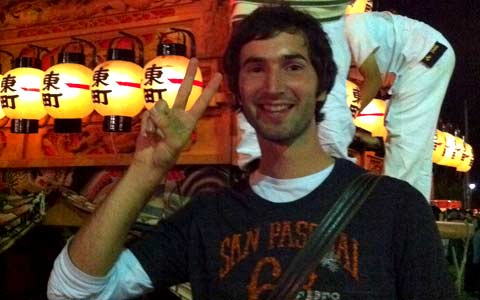Via a JET alum friend who has a colleague working in Tohoku:
“What is happening here is that among those affected by this disaster, hundreds of small self-help group are emerging in the shelters and elsewhere. This is really the resilience of Japanese people. Every day, TV program report those self-help volunteer group. Victims are helping each other, particularly those young people’s group are doing fantastic activities. However, I’m afraid that the fatigue syndrome will spread sooner or later and it is the time for the role of local NPOs to support those people become very important.”
How bloggers can help Japan through the tough times
 It’s amazing to see how everybody in America is thinking of unique ways to help Japan in this time of crisis. People are taking to the streets asking for donations (myself included), there are communities doing translations for towns and villages across the region, and now wibiya, an app for bloggers, has developed a tool that can be placed on the bottom of your blog/website.
It’s amazing to see how everybody in America is thinking of unique ways to help Japan in this time of crisis. People are taking to the streets asking for donations (myself included), there are communities doing translations for towns and villages across the region, and now wibiya, an app for bloggers, has developed a tool that can be placed on the bottom of your blog/website.
Bloggers can download this free application and have a bar underneath their site that informs people about how to donate to the red cross and help the victims of the earthquake and tsunami in Japan. This is what innovation is all about. Using technology to help people in need. It is in times like this that I am proud to say that I’m an American. Thank you again to everybody helping Japan.
Click Here to download the application
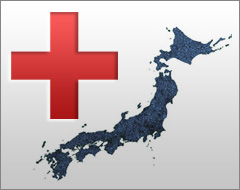 |
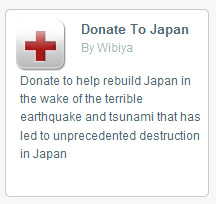 |
Posted by Sam Frank, an ALT who taught English in Hiraizumi-Cho, Iwate Prefecture from 2002-2004 and worked in Shirahama-cho, Wakayama Prefecture as a JET from 2004-2006. He currently manages the New York Division of UnRated Magazine (http://unratednyc.com) and works as a Project Manager at Arrow Root Media (http://arrowrootmedia.com).
Man Up For Japan: Innovative fundraising effort by JET David Chalmers
 You may have seen “Man Up For Japan” all over Facebook or elsewhere. Here’s an article about JET David Chalmers (originally from Scotland) and his efforts to help fundraise for earthquake relief in Japan.
You may have seen “Man Up For Japan” all over Facebook or elsewhere. Here’s an article about JET David Chalmers (originally from Scotland) and his efforts to help fundraise for earthquake relief in Japan.
Scot does his bit to aid Japan
Published Date: 20 March 2011
By Nick Mitchell
A CAMPAIGN launched by a Scot based in Japan to raise cash for the current disaster relief effort has received support from almost 5,000 people and could generate hundreds of thousands of pounds in aid.
Taking its name from “ichi man yen”, the Japanese for 10,000 yen, the Facebook-driven campaign is called “Man up for Japan” and is asking people to pledge the sum (around £75) to a relief charity of their choice.
The concept was devised by David Chalmers, 24, an Edinburgh native who is currently tutoring Japanese students in English through the popular Japan Exchange and Teaching (JET) Programme.
CLICK HERE to read the full article
Volunteer: Provide housing to earthquake evacuees
I saw this link on the Nagasaki JET email group. I don’t know anything about it other than what’s on the website:
Calling for “Homestay for Earthquake Evacuees”
Please offer your “home” to ease hardships of the earthquake evacuees.
This calling is basically to people living in Japan currently only.
More info here: http://earthdaymoney.org/topics_dt.php?id=391
Ways JET Alums Can Help: Wear a button that says, “Ask Me About Japan”
AS a JET alum, you know far more about Japan than most people in your country (unless you live in Japan of course). One of the really helpful thing you can do in the coming weeks and months is to help keep up awareness and understanding of Japan. Help people continue to feel connected to and empathetic toward Japan, even after the story falls from the headlines. Because support is going to be needed for a long while. This is not a short term effort.
Here’s one more way you can help:
- Wear a button (or a t-shirt or other wearable item) that simply says: “Ask me about Japan”.
- Do this not just now but in the coming weeks and months as well.
This will:
a) Keep Japan in everyone’s consciousness
b) Turn JET alums (and others who have lived in Japan) into a resource for people who want to know more about Japan, to connect with Japan, to support Japan.
This is something all JET alums can do to help.
Ways JET Alums Can Help: Make yourself available to talk to schools, churches, companies, other organizations
AS a JET alum, you know far more about Japan than most people in your country (unless you live in Japan of course). One of the really helpful thing you can do in the coming weeks and months is to help keep up awareness and understanding of Japan. Help people continue to feel connected to and empathetic toward Japan, even after the story falls from the headlines. Because support is going to be needed for a long while. This is not a short term effort.
Here’s one more way you can help:
- Make yourself available to talk to schools, churches, companies or other organizations in your community. People do not know a lot about Japan, but many will want to know more. Put yourself out there and offer to be a link. To answer questions for students. To share some personal experiences about what it was like to live in Japan.
- Better yet, work with your local JET Alumni Association chapter and/or Japanese Consulate to make it a more organized effort.
This is something all JET alums can do to help.
Ways JET alums can help: Engage your grad school or college alumni offices
JET alumni are helping in so many ways–fundraising, volunteering, translating, communicating, etc–that it’s hard to keep track of. (Which makes me feel prouder than ever to have served as a JET.)
If you’re looking for ways to help, here’s one more:
- Get in touch with your grad school or college alumni office.
- Let them know you’re a JET alum (you might have to explain what that is).
- Offer to be a resource for helping them to support Japan in some way. Or encourage them to do so.
Your school most likely has some form of connection with Japan. But they may not be focused on the details of what’s going on. Or how to engage their alumni in an appropriate way.
Be a resource for your school’s alumni organization. Offer to write something, to share helpful links or information, to explain things, to translate, to be a point person for reaching out to other alumni. Figure out whatever their needs (or obstacles) are in connection with supporting Japan and figure out a way to be helpful to them.
Many people who don’t have a connection to Japan want to help but may not know how. Be the person that enables them to help. And to do that, make sure you’re up to date and educated. Reading JetWit is a good start. Also check the websites of your nearest JET Alumni Association chapter as well as any other Japan-related organizations in your area.
This is a role all JET alumni can play.
Consulate General of Japan in New York Accepting Donations

Dear all,
●The Consulate General’s account to receive financial donation: please go to the link below;
http://www.ny.us.emb-japan.go.jp/en/t/2011/110315_02.html
●The Consulate General of Japan in New York wishes to inform you that a book of condolences for the victims of the recent Tohoku-Pacific Ocean Earthquake will be open for people to express their sympathies on the following dates:
・ March 17-18 (Today-Friday): 9:30am-4:00pm
・ March 21-23 (Monday-Wednesday): 9:30am-4:00pm
The condolences book will be on the 18th floor of our offices at 299 Park Avenue.
The Consulate General of Japan wishes to extend its sincere appreciation for your kind support.
Consulate General of Japan
212-371-8222
This post was written by Sam Frank, an ALT who taught English in Hiraizumi-Cho, Iwate Prefecture from 2002-2004 and worked in Shirahama-cho, Wakayama Prefecture as a JET from 2004-2006. He currently manages the New York Division of UnRated Magazine (http://unratednyc.com) and works as a Project Manager at Arrow Root Media (http://arrowrootmedia.com).
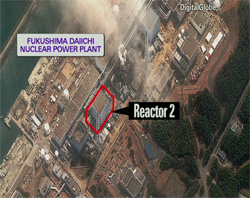 After his hometown of New Orleans was ravaged by Hurricane Katrina the Japanese government offered material and monetary assistance that surpassed $1 million and that included tents, blankets, power generators and portable water tanks. Japan also provided $200,000 to the American Red Cross to aid hurricane victims. Now former Fukushima Prefecture, Iwaki City JET from 2007-2010 Doug Tassin is on a mission to help his former home in Japan.
After his hometown of New Orleans was ravaged by Hurricane Katrina the Japanese government offered material and monetary assistance that surpassed $1 million and that included tents, blankets, power generators and portable water tanks. Japan also provided $200,000 to the American Red Cross to aid hurricane victims. Now former Fukushima Prefecture, Iwaki City JET from 2007-2010 Doug Tassin is on a mission to help his former home in Japan.
The New Orleans Japan Quake Fund is currently in the process of being established. It is being formed by a coalition of New Orleans-based, Japan-related groups: Japan Club of New Orleans, Japan Society of New Orleans, jetaaNOLA (JET Program Alumni Association, New Orleans Chapter), and Japanese Garden Society. With the full support of Honorary Consul General of Japan Donna Fraiche and hopefully the endorsement of the govenor of Louisiana and mayor of New Orleans, we are creating this fund as a means for all of New Orleans to repay the generosity and care that Japan showed us in our time of need. This donor administered fund will be created through the Greater New Orleans Foundation (GNOF), and we plan to raise money in the fund and give it directly to an organization in Japan. GNOF has a long history of successfully administering funds, and we will still be able to direct where the money goes.
Click below to read the full story by Doug and see how you can make a difference. Yoroshiku Onegaishimasu.
http://www.facebook.com/note.php?note_id=10150159551445306
This post was written by Sam Frank, an ALT who taught English in Hiraizumi-Cho, Iwate Prefecture from 2002-2004 and worked in Shirahama-cho, Wakayama Prefecture as a JET from 2004-2006. He currently manages the New York Division of UnRated Magazine (http://unratednyc.com) and works as a Project Manager at Arrow Root Media (http://arrowrootmedia.com).
Volunteers needed for “Multilingual Medical Terms Translation List” created by Okinawa JET
Multilingual Medical Terms Translation List
This is a project that Stephanie Toriumi (CIR Okinawa-ken, Ishigaki-shi) is just getting off the ground. She is looking for volunteers to help check, add terms & other languages so that the list will keep growing.
https://spreadsheets0.google.com/ccc?pli=1&key=tOXlkY2K3JSEhLa5TCJEC0w#gid=0
Earthquake: Write for Tohoku – Call for Submissions
Posted by Dipika Soni (Ishikawa-ken, 2003-06). Dipika currently works as an in-house translator for PFU (a Fujitsu company) in Kahoku-shi, Ishikawa-ken. She is also the vocalist for the Japanese hardcore punk band DEGRADE.
———————————————————————————————————————————-
There is an open call for submissions to an ebook anthology to raise funds for Tohoku.
Please go to the following website for more details: http://writefortohoku.wordpress.com/
Japan volunteers: Resource site for people who want to support earthquake/tsunami relief efforts in Japan
Japan volunteers: Resource site for people who want to support earthquake/tsunami relief efforts in Japan
http://japanvolunteers.wordpress.com/action/
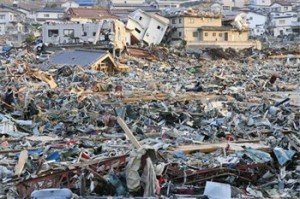 Volunteer translators are needed to go to Japan to help with the aftermath of Japan’s earthquakes & tsunami, as international rescue teams have communication difficulties.
Volunteer translators are needed to go to Japan to help with the aftermath of Japan’s earthquakes & tsunami, as international rescue teams have communication difficulties.
Here is a message from the Tokyo Translation Academy:
If you’d like to translate this piece yourself click here and drop the text in:
東日本大震災救援、「通訳ボランティア」募集!!!
(この募集は、ご友人・知人にも、なるべく多くご転送下さ い。) Read More
Posted by Dipika Soni (Ishikawa-ken, 2003-06). Dipika currently works as an in-house translator for PFU (a Fujitsu company) in Kahoku-shi, Ishikawa-ken. She is also the vocalist for the Japanese hardcore punk band DEGRADE.
———————————————————————————————————————————-
About Hope Letters:
David Chan of Ottawa, Canada has started a voluntary initiative to share letters of hope written for students in Japan by people around the globe. Letters will be collected, translated into Japanese, posted on the following site: http://hopeletters.wordpress.com, and distributed via Japanese media and local schools/organizations. Currently there are 6 volunteer translators across Canada. Read More
Earthquake: Volunteer Information for People in Japan
Via AJET Website. Thanks to JET Mike Maher-King (Fukui) of Smile Kids Japan for all his efforts with this:
http://ajet.net/lang/en/2011/03/16/volunteer-information-for-people-in-japan
AJET and Smile Kids Japan, with support from the JetWit JET alumni translators and interpreters group, have compiled a list of prefectural volunteer organisations (PVOs) mobilising volunteer groups to do ground work in areas affected by the earthquake and tsunami. The list of PVOs can be found below.
The current state of affected areas in the Tohoku region is still being assessed. Until a final assessment has been made, no volunteers will be allowed into those areas. Because PVOs are being formed on a prefectural level, each prefecture is at a different stage in organisation. This list will be updated frequently so please keep checking back here for the latest news about your prefecture.
Although we recommend that JETs in unaffected areas stay safe at home, we know many of you have volunteer experience and want to get involved at ground level. We highly recommend that interested volunteers contact their PVO before contacting any NGOs. PVOs are prepared to work with large numbers of untrained volunteers and know how to create safe, secure ways to volunteer in Tohoku; most NGOs cannot do this as effectively. In addition, by working with your PVO, you will be helping the affected areas rebuild themselves while promoting grassroots internationalization by bonding with your local prefectural volunteers.
We must also remind all JETs that you are under contract. Your role in Japan is first and foremost as an educator or community relations officer. If your contracting organisation or school asks you not to volunteer, you must not go. Also, as a JET you should only be volunteering your time during school holidays. Keep in mind that relief efforts are going to take many months; even if you cannot get permission to volunteer now there may be other opportunities to volunteer during Golden Week, summer holidays and beyond.
——————————
Should you volunteer away from home?
- You may be able to help more from home:
You can help from your prefecture by making material/monetary donations, doing fundraisers, donating blood or hosting displaced people through CouchSurfing. Going to the Tohoku region isn’t something to do because of peer pressure, it is a serious decision.
- Do not go to Tohoku without support:
Going alone without the support of a recognized PVO/NGO puts you and disaster victims in danger. Especially if you are untrained/unskilled, you can make matters worse. This was a major problem for NGOs in Haiti and we do not want anyone slowing down the emergency response.
- Tohoku is not yet safe for untrained volunteers:
Not one volunteer organisation is allowing untrained/unskilled volunteers into the disaster zone yet. It is not safe. Organisations will start sending lay volunteers when the region is deemed stable and safe. Be patient. Be safe.
- Make sure you’re physically and mentally prepared:
AJET and the volunteer organisations ask you to seriously consider your physical and mental health. You will be going into a disaster zone, one that in places may look worse than a typical war zone. There will be things that you may not expect or want to see. You will be doing heavy, physical labor after a very long journey by bus or car. Are you ready to handle that?
- Make sure that you can afford to pay your own way:
You will be responsible for your own travel, accommodation, food, water and other basic expenses.
- Be prepared to stay in very modest accommodation:
It is likely that you will be camping near your work sites but accommodation may vary by location.
- Be sure that you can can complete all work duties in addition to volunteering:
The volunteer dates may not fit your work schedule, if volunteer opportunities fall outside of spring break/Golden Week, you may not be able to go. Also your contracting organisation may not approve your request to do volunteer work/take nenkyu. If they do not approve, you must not go.
- Be ready and able to leave on short notice:
PVOs will send notice of the chance to volunteer only very shortly before they actually move out. Will your schedule and contracting organisation allow that?
- Be aware of the risks:
PVOs will do their best to make the trip safe for everyone. The ones we have contacted so far are providing special volunteer insurance to cover you but please know that if anything happens, it was your decision to be there and you are responsible for your own well-being. We will organise a contact person in your PVO and in your home prefecture, so that we can remain in touch at all times and quickly address any issues that may arise. However, there will still be some risks to volunteering.
————————
If you are not accepted by your PVO for any reason, AJET and Smile Kids Japan are currently working on a list of NGOs that may later accept groups of foreign volunteers. No matter how you volunteer, it will be essential to register with AJET and keep your B.O.E informed so that we can always account for every JET’s whereabouts and safety.
Please direct any questions to volunteer@ajet.net.
————————
Find Your Prefectural Volunteer Organizations Here:
AJET SKJ Earthquake Volunteering Info
[This list will be constantly updated — check back if you can’t find what you’re looking for!]
————————
Donate Money here – http://www.facebook.com/event.php?eid=198359066854878
Donate Food/Goods – http://www.2hj.org/index.php/news/send_us_food_and_supplies/
Host displaced people here – http://www.couchsurfing.org/group.html?gid=39703
Counseling Services – http://www.telljp.com/ / http://ajet.net/psg/index.php?title=AJET_Peer_Support_Group
Compiled by
AJET http://ajet.net/
Smile Kids Japan www.smilekidsjapan.org
with help from
JetWit http://jetwit.com/wordpress/

